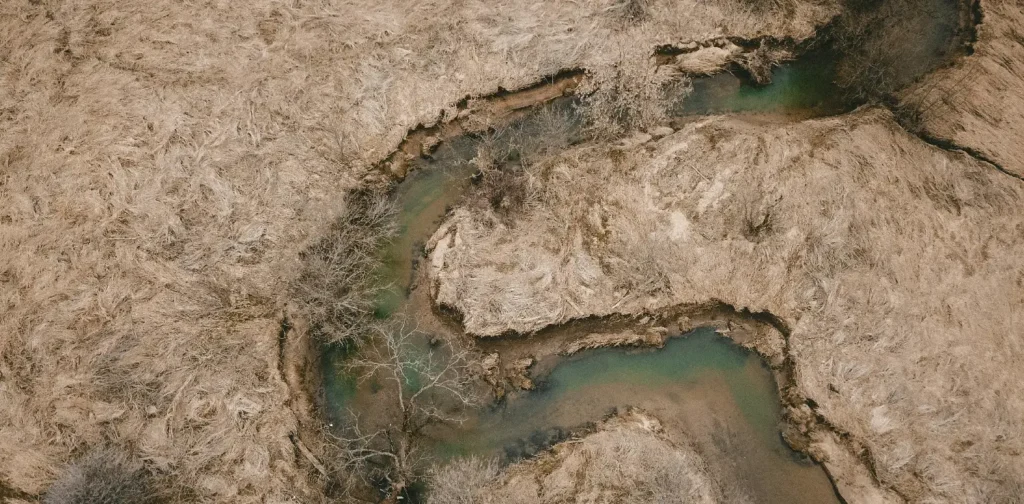Driest Year in 30 Years: Our rivers are drier than ever

Photo by Keagan Henman on Unsplash
While over 70% of our planet is covered in water, freshwater makes up less than 1%. Disastrously, extreme hydrological events are slowly becoming the new normal as 2023 marked the driest year for rivers all over the world. The climate crisis looms upon us as the Earth grows hotter and hotter, rising the alarm on global water resources.
Extreme Hydrological Events
Global temperature keeps rising, and 2023 was the hottest year on record so far. It was overall 1.48°C warmer than the benchmark for the pre-industrial level temperature, with almost 50% of days exceeding the 1.5°C threshold that year.
Additionally, the naturally occurring transition to El Niño in mid-2023 and human-induced climate change merged to cause droughts and floods worldwide. For instance, two dams in Libya collapsed due to neglect and a major flood in September 2023, causing more than 11,000 deaths.
“As a result of rising temperatures, the hydrological cycle has accelerated. It has also become more erratic and unpredictable, and we are facing growing problems of either too much or too little water. A warmer atmosphere holds more moisture which is conducive to heavy rainfall. More rapid evaporation and drying of soils worsen drought conditions,” said Celeste Saulo, Secretary-General of the World Meteorological Organization (WMO).
“And yet, we are not taking the necessary urgent action.”
Driest Year
According to the State of Global Water Resources report, the year 2023 was “the driest year for global rivers in over three decades”. For the past five years, river flows have been experiencing widespread below-normal levels. This worsening condition means there is less water available for communities and ecosystems.
Many areas recorded lower-than-normal river discharge–the volume of water that flows through a river channel. The Mississippi and the Amazon basins experienced their lowest water levels ever. Similar condition that led to severe drought was also experienced in other North, Central, and South America territories. In Asia, the Ganges, the Brahmaputra, and the Mekong basins saw lower-than-normal conditions over almost all their areas.
Meanwhile, levels of soil moisture across the globe were below or much below normal in 2023. Soils in North America, South America, North Africa, and the Middle East were particularly dry from June to August. In Mexico, this condition lasted almost the entire year due to drought.
For glaciers, the last five decades saw massive mass loss. From September 2022 to August 2023 alone, glaciers lost more than 600 Gigatonnes of water. The year 2023 became the second consecutive year in which all regions with glaciers reported ice loss. Saulo warned, “Melting ice and glaciers threaten long-term water security for many millions of people.”
Managing Global Water Resources
“Far too little is known about the true state of the world’s freshwater resources. We cannot manage what we do not measure,” said Saulo.Improved monitoring and data sharing is just the first step. Encouraging country participation and collaboration to obtain observational data and other relevant variables is crucial to understanding water cycle dynamics. Ultimately, better understanding will lead to better decision-making for achieving sustainable management of global water resources.

Co-create positive impact for people and the planet.
Amidst today’s increasingly complex global challenges, equipping yourself, team, and communities with interdisciplinary and cross-sectoral insights on sustainability-related issues and sustainable development is no longer optional — it is a strategic necessity to stay ahead and stay relevant.

Nazalea Kusuma
Naz is the Manager of International Digital Publications at Green Network Asia. She is an experienced and passionate writer, editor, proofreader, translator, and creative designer with over a decade of portfolio. Her history of living in multiple areas across Southeast Asia and studying Urban and Regional Planning exposed her to diverse peoples and cultures, enriching her perspectives and sharpening her intersectionality mindset in her storytelling and advocacy on sustainability-related issues and sustainable development.


 Indian Gig Workers Push Back Against 10-Minute Delivery Service Strain
Indian Gig Workers Push Back Against 10-Minute Delivery Service Strain  Call for Governance: Grassroots Initiatives Look to Scale Efforts to Conserve Depleting Groundwater
Call for Governance: Grassroots Initiatives Look to Scale Efforts to Conserve Depleting Groundwater  Integrating Environment, Climate Change, and Sustainability Issues into Education Systems
Integrating Environment, Climate Change, and Sustainability Issues into Education Systems  Finally Enforced: Understanding the UN High Seas Treaty
Finally Enforced: Understanding the UN High Seas Treaty  Risks and Opportunities of Submarine Communication Cables for Sustainable Development
Risks and Opportunities of Submarine Communication Cables for Sustainable Development  Rising Attacks and Violence Against Land and Environmental Defenders
Rising Attacks and Violence Against Land and Environmental Defenders